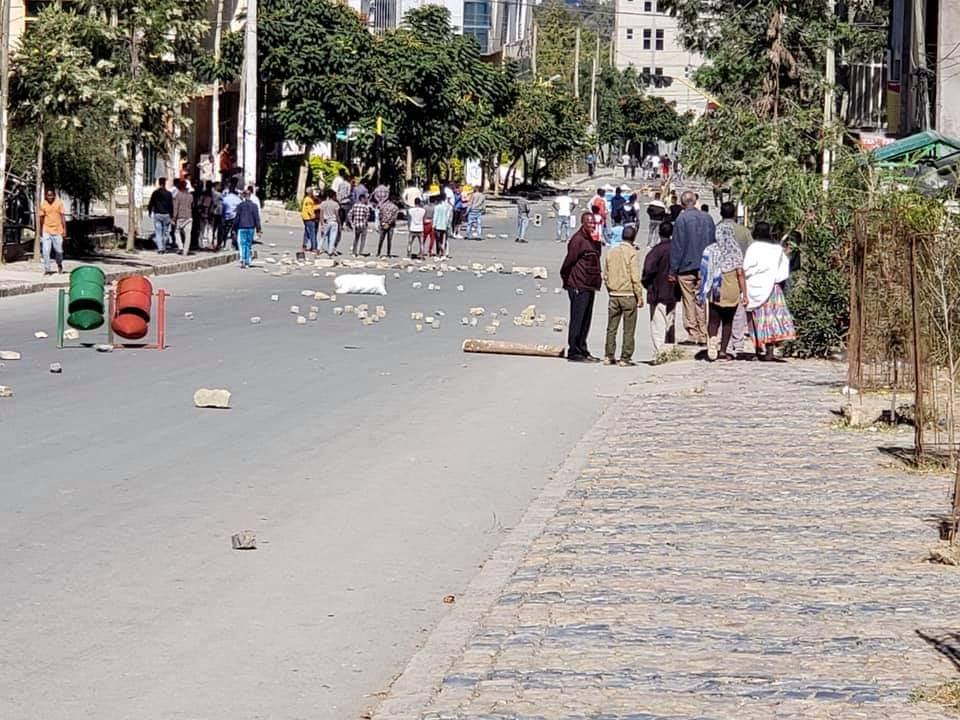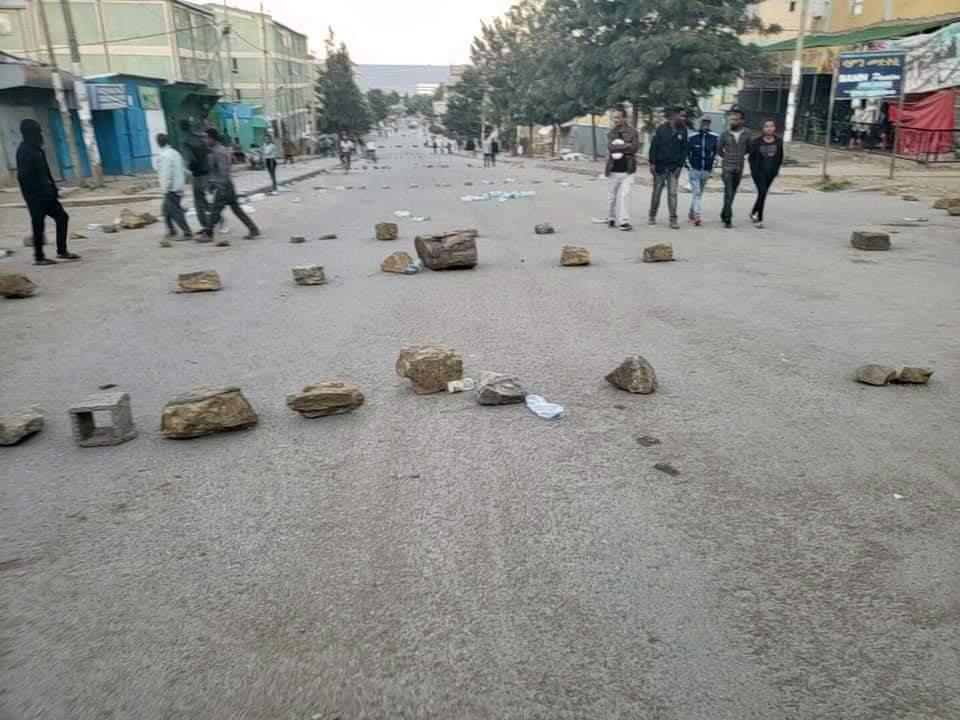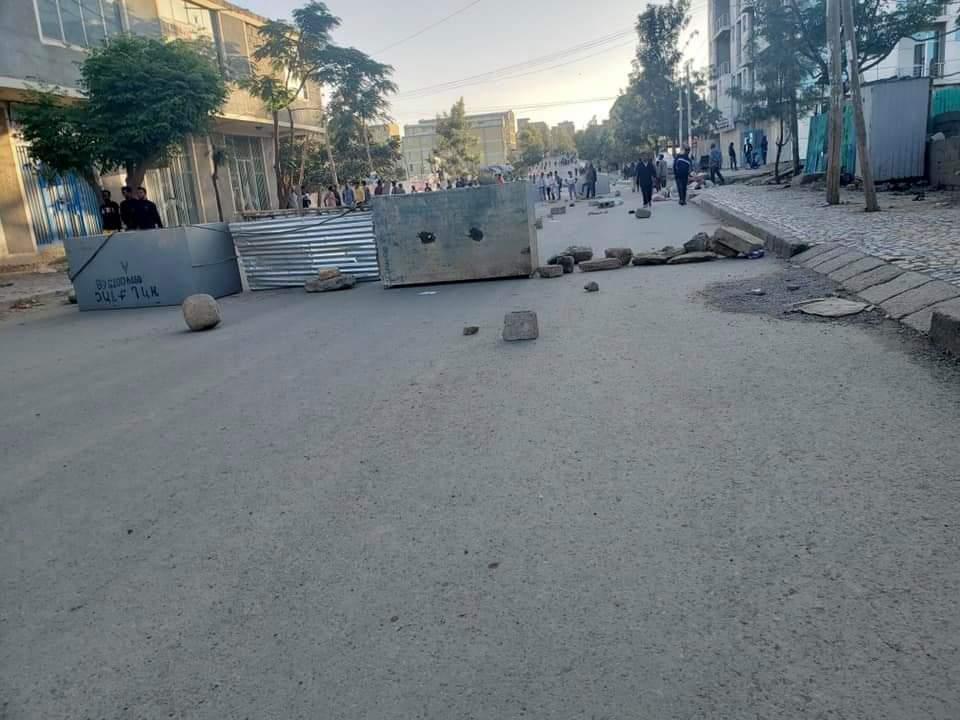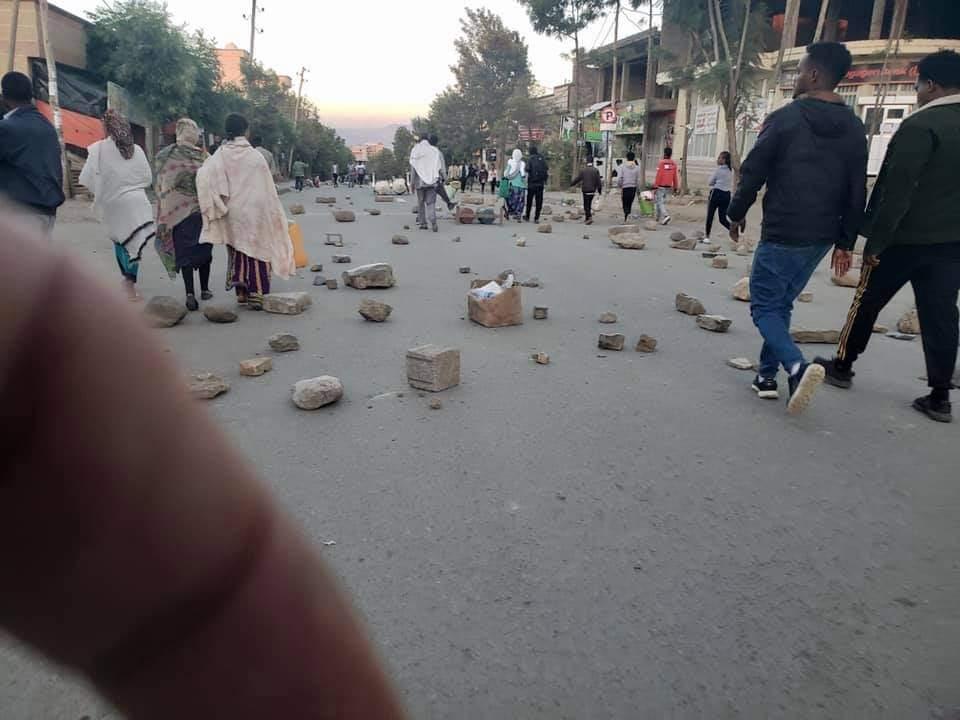Forum Replies Created
-
AuthorPosts
-
Ethiopia faces a rising debt to service, while major companies are pulling out of plans to locate there. Meanwhile the war rages on.
 When Bangladeshi textile firm DBL set up shop in Ethiopia two years ago, the African nation was the garment industry’s bright new frontier, boasting abundant cheap labour and a government keen to woo companies with tax breaks and cheap loans.
When Bangladeshi textile firm DBL set up shop in Ethiopia two years ago, the African nation was the garment industry’s bright new frontier, boasting abundant cheap labour and a government keen to woo companies with tax breaks and cheap loans.Last month, as fighting raged in the northern Tigray region, DBL’s compound was rocked by an explosion that blasted out the factory’s windows, radically altering its business calculus.
“All we could do was to pray out loud,” said Adbul Waseq, an official at the company, which makes clothes mainly for Swedish fashion giant H&M and is one of at least three foreign garment makers to have suspended operations in Tigray.
“We could have died,” Waseq told the media.
For over a decade, Ethiopia has invested billions of dollars in infrastructure such as hydro-electric dams, railways, roads as well as industrial parks in an ambitious bid to transform the poor, mainly agrarian nation into a manufacturing powerhouse.
By 2017, it was the world’s fastest growing economy.
A year later, Prime Minister Abiy Ahmed took office, pledging to loosen the state’s grip on an economy with over 100 million people and liberalise sectors such as telecoms, fuelling something akin to glasnost-era headiness among investors.
But for two years Ethiopia has been pummelled by challenges: ethnic clashes, floods, locust swarms and coronavirus lockdowns.
Now, fighting which erupted on Nov. 4 between the army and forces loyal to Tigray’s former ruling party, and fears it could signal a period of prolonged unrest, have served investors with a harsh reality check.
Any hesitation by investors could spell trouble as the country’s manufacturing export push isn’t yet generating enough foreign currency either to pay for all the country’s imports or keep pace with rising debt service costs. Even before the pandemic, the International Monetary Fund (IMF) had warned that Ethiopia was at high risk of debt distress.
Abiy’s government said that, amid the crises it’s facing, Ethiopia was pushing ahead with reforms that will build the foundations for a modern economy.
“Despite the unprecedented shock from COVID and continued insecurity in different parts of the country, the Ethiopian economy showed remarkable resilience,” Mamo Mihretu, senior policy adviser in the prime minister’s office, told Reuters.
Ethiopia is a relatively small textiles producer with exports in 2016 of just $94 million compared with $29 billion for Vietnam and $253 billion for China in the same year, World Bank trade data showed. Its top exports are agricultural, such as coffee, tea, spices, oil seeds, plants and flowers.
But Ethiopia’s push into the textile industry over the past 10 years has been emblematic of its manufacturing ambitions.
As fighting neared Tigray’s regional capital, Mekelle, textile companies began shutting down and pulling out staff.
“It seemed that the conflict was getting closer to the city, and our worry was that we wouldn’t be able to leave,” Cristiano Frati, an electrician evacuated from a factory run by Italian hosiery chain Calzedonia, told an Italian newspaper.
Calzedonia said on November 13 it had suspended operations at the plant, which employs about 2,000 people, due to the conflict. It has declined to comment further.
DBL, meanwhile, has flown its foreign staff out of Ethiopia.
“Everything has become uncertain,” its managing director M.A. Jabbar said. “When will the war end?”
Another foreign company, Velocity Apparelz Companies – a supplier to H&M and Children’s Place – has also temporarily shut down, a company official told Reuters.
H&M said it was “very concerned” and was closely monitoring the situation.
“We have three suppliers in Tigray, and the production there has come to a halt,” the company told Reuters, emphasising that it would continue to source from Ethiopia where it has about 10 suppliers in total.
Indochine Apparel, a Chinese firm that supplies Levi Strauss & Co, said its operations in the Hawassa industrial park in the south of the country were unaffected.
Levi Strauss said it was monitoring the situation and confirmed there had been no impact on its supply chain so far.
Ethiopia’s apparel sector was struggling even before the fighting in Tigray because of the economic fallout from the COVID-19 pandemic. Some facilities did not survive the collapse in orders while others slashed wages or laid off staff.
The malaise has not been limited to the garment sector.
Even before the conflict, insurance companies underwriting political risk had stopped providing cover beyond Ethiopia’s northern Amhara region and the federal capital Addis Ababa, a risk consultant who advises corporate clients said.
“Ethiopia is not a pretty picture right now,” he said.
Like most sources contacted by Reuters, the consultant asked not to be named, fearing a backlash from government authorities.
Abiy’s efforts to ease a repressive political climate had already uncorked ethnic clashes before the war in Tigray. Violence in other parts of the country which intensified in 2019 had disrupted projects, notably in agriculture.
“The fighting started around the time we were going to start planting,” said the head of an agri-industry project that was forced to delay its investment last year.
Swedish furniture giant IKEA opened a purchasing office in Ethiopia last year. However, it closed it down in September after shelving plans to source from the country due to the political and social situation, COVID-19 and changes to the cotton market in Africa, the company told Reuters.
Meanwhile, Coca-Cola Beverages Africa, a bottling partner of the Coca-Cola Company, told Reuters that the fighting in Tigray, which accounts for about 20 per cent of its sales volumes in Ethiopia, had halted business there.
That comes on the heels of delays in the construction of two new bottling plants – part of a $300 million five-year investment plan announced last year – due to the pandemic and an excise tax increase.
With the fall of Mekelle at the end of last month, Abiy declared victory over Tigray’s former ruling party (TPLF).
“The swift, decisive, and determined completion of the active phase of the military operation means any lingering concerns about political uncertainty by the investment community will be effectively settled,” Abiy’s adviser Mamo said.
The TPLF has vowed to fight on.
For the government, there is little margin for error. Ethiopia’s external debt has ballooned five-fold over the past decade as the government borrowed heavily – notably from China – to pay for infrastructure and industrial parks.
Foreign direct investment inflows, meanwhile, have declined steadily since a 2016 peak of more than $4 billion, slipping to about $500 million for the first quarter of this fiscal year.
Inflation is hovering around 20%.
“There are very few ways out of this. They aren’t going to get more money from the IMF. They can’t go to the markets. Their best bet is a global economic recovery next year,” said Menzi Ndhlovu, senior country and political risk analyst at Signal Risk, an Africa-focused business consultancy.
Still, Ethiopia passed a landmark investment law earlier this year and implemented currency reforms.
And the government is pushing ahead its plans to open up the telecommunications sector. It opened tendering for two new telecoms licences at the end of November and plans to sell off a minority stake in state-owned Ethio Telecom.
Sources following the process, which should provide the beleaguered economy with a hefty injection of dollars, said interested companies were not deterred by the current unrest.
But for now, Ethiopia’s grand manufacturing dreams have been dealt a setback.
“Who will go there in this situation?” asked DBL’s Waseq, who has returned to Bangladesh. “No one.”
Ethiopia Autonomous Media
In a development the United Nations has called “disturbing,” Ethiopia on Friday said it was returning thousands of refugees who ran from camps in its Tigray region as war swept through, putting them on buses back to the border area with Eritrea, the country from which the refugees originally fled.

The news came as the United States said it believes Eritrean troops are active in Ethiopia, something it called a “grave development”. A State Department spokesperson in an email cited credible reports and said “we urge that any such troops be withdrawn immediately”.
The UN refugee chief, Filippo Grandi, said that “over the last month, we have received an overwhelming number of disturbing reports of Eritrean refugees in Tigray being killed, abducted and forcibly returned to Eritrea. If confirmed, these actions would constitute a major violation of international law”. He said his agency has met with some refugees in the Ethiopian capital, Addis Ababa, and he again urged unhindered humanitarian access to Tigray.
Ethiopia said its recently completed military offensive against the now-fugitive Tigray regional government “was not a direct threat” to the 96,000 “misinformed” Eritrean refugees — even as aid groups said four staffers had been killed in the fighting, at least one in a refugee camp.
UN Secretary-General Antonio Guterres this week said Ethiopian prime minister Abiy Ahmed, last year’s Nobel Peace Prize winner, “guaranteed to me that (Eritrean forces) have not entered Tigrayan territory”. But Tigray residents have asserted that gunfire came from the direction of Eritrea as the conflict began.
‘Alarming messages’
Eritrea, described by rights groups as one of the world’s most repressive countries, is a bitter enemy of the fugitive Tigray government.The UN’s refugee agency said it hadn’t been informed in advance of the Eritrean refugees’ return. “We received alarming messages from Eritreans living abroad and when we looked into them, ascertained that several hundred refugees had been put on buses this morning to be returned to the Tigray region,” it said.
Any forced return, it said, “would be absolutely unacceptable”.
Given the trauma that refugees say they witnessed in Tigray, they should be protected elsewhere, the agency said. It said the refugee camps have had no access to food or other supplies for more than a month.
The International Organisation for Migration said it was “extremely concerned” about the refugees’ “forced” return and denied it was involved, saying Ethiopia took over one of its transit centres in the capital, Addis Ababa, on December 3.
Aid groups say thousands of Eritrean refugees had fled to Addis Ababa and the Tigray capital, Mekele. Ethiopia said their “unregulated movement” makes it difficult to ensure their security.
Their camps are now stable and under “full control,” Ethiopia said, adding that food delivery there “is underway”.
But communication and transport links to Tigray remain so challenging that the International Rescue Committee said it was still trying to confirm details around the killing of a colleague in the Hitsats refugee camp in Shire town, the base of aid operations.
Separately, the Danish Refugee Council said three staffers who worked as guards at a project site were killed last month. It was not clear where, but the group also supports the Eritrean refugees.
“Sadly, due to the lack of communications and ongoing insecurity in the region, it has not yet been possible to reach their families,” the group said.
“Now, more than ever, it is a matter of urgency to cease all hostilities,” the European Union’s commissioner for crisis management, Janez Lenarcic, said while condemning the killings.
Food rations scarce
Tigray remains largely sealed off from the world five weeks after fighting erupted between Ethiopia’s government and the Tigray one following a months-long power struggle. The governments regard each other as illegitimate, the result of months of friction since Abiy took office in 2018 and sidelined the once-dominant Tigray People’s Liberation Front.Thousands of people are thought to have been killed in the fighting that began Nov. 4 and has threatened to destabilise the Horn of Africa.
Ethiopia rejects “interference” as fighting reportedly continues, while the UN has pleaded for neutral, unfettered access. “Food rations for displaced people in Tigray have run out,” the UN humanitarian office tweeted.
“Every day that we don’t have access is a day lost. Every day that we don’t have access is a day that increases the suffering of civilians,” UN spokesman Stephane Dujarric told reporters, and he referred questions to Ethiopia’s side.
Ethiopia says it is responsible for ensuring the security of aid efforts — though the conflict and related ethnic tensions have left many Tigrayans wary of government forces.
On Friday, Ethiopia said it had begun delivering aid to areas in Tigray under its control, including Shire and Mekele, a city of a half-million people.
“Suggestions that humanitarian assistance is impeded due to active military combat in several cities and surrounding areas within the Tigray region is untrue and undermines the critical work undertaken by the National Defence Forces to stabilise the region,” the prime minister’s office said, noting only “sporadic gunfire” remained.
Some 6 million people live in Tigray. About 1 million are now thought to be displaced. The impact on civilians has been “appalling,” the UN human rights chief said this week.
This week, Ethiopia said its forces shot at and briefly detained UN staffers conducting their first security assessment in Tigray, a crucial step in delivering aid. Ethiopia said they were trying to go where they weren’t allowed.
Meanwhile, nearly 50,000 Ethiopians have fled to Sudan and more are still arriving.
“The recent groups coming from areas deeper inside Tigray are arriving weak and exhausted, some reporting they spent two weeks on the run inside Ethiopia as they made their way to the border,” UN refugee spokesman Babar Baloch told reporters. “They have told us harrowing accounts of being stopped by armed groups and robbed of their possessions.”
Without access in Ethiopia, he said, “we are unable to verify these disturbing reports”.
Ethiopia Autonomous Media
Hundreds of thousands of people are displaced as fighting continues between government forces and the Tigray People’s Liberation Front in northern Ethiopia, threatening the stability of a volatile region. Cameron Hudson, senior fellow at the Atlantic Council’s Africa Center and former director for African affairs at the National Security Council joins to discuss the conflict and its impact.

Hari Sreenivasan:
For more on the continuing conflict in Ethiopia and the impact it is having on the region, I spoke with Cameron Hudson, a senior fellow with the Atlantic Council’s Africa Center and former Director for African Affairs at the National Security Council during the George W. Bush administration.
Cameron, we’ve been reporting on the momentary kind of strife that’s been happening on a weekend by weekend basis, but if you could explain for us, put this in perspective, what is the conflict about?
Cameron Hudson:Well, the conflict is really about kind of ethnic federalism.
Ethiopia is made up of 10 different ethnic regions and a lot of autonomy has been devolved down to that regional level. And as part of Prime Minister Abiy’s kind of overall democratic reform process, he really sought to erase a lot of those ethnic differences in the country and promoted a kind of pan-Ethiopian nationalism, almost. And I think what you’re seeing here, certainly in the Tigray region, which is traditionally where the power center has been in the country, is a feeling that they have been sort of capsid in the political process in the country. And you’re seeing now a kind of more formalized agitation for a return to kind of ethnic federalism and the promotion of ethnic rights. And so, it is really part of a democratic reform process that Abiy has been undertaking, but which probably hasn’t had enough buy in from all of these ethnic minorities across the country.
Hari Sreenivasan:I mean, this is a person who won a Nobel Peace Prize. Yet here he is, part of a conflict that has displaced hundreds of thousands of people.
Cameron Hudson:The Nobel Prize was obviously for an international effort to heal wounds of the war with Eritrea, which took place in the late 1990s. What we’re seeing now, though, is Eritrea, as the partner in peace, may have now become the partner in war.
We have seen cooperation between Ethiopia and Eritrea and even the active involvement of the Eritrean forces in this conflict in Tigray. And so I think that with respect to the Nobel, people are asking whether it was premature. I think it was a kind of a hoped-for movement in a direction of peace. But what we’re seeing is his effort to make peace with Eritrea is not a reflection on his tactics domestically.
Hari Sreenivasan:What are the consequences for the countries surrounding this region as displaced people start to head for those borders?
Cameron Hudson:Well, it’s huge.
I mean, you cannot underestimate the, frankly, the beneficial role that Ethiopia has played in the region. It is the largest provider of peacekeeping forces on the continent of Africa, and it has played an essential role in conflicts in Somalia and Sudan in recent years. It is the largest provider of peacekeepers in the Somali conflict, which we as a US government have spent billions being a part of and trying to stabilize that country.
We’re on the precipice of seeing Ethiopian troops completely withdrawn from that theater in advance of of elections there. Obviously, they’ve also been a major peacemaker and mediator in conflicts in both Sudan, the revolution, the democratic revolution that’s been going on there and the civil conflict that took place in South Sudan just a few years ago.
So if we see Ethiopia move from the traditional role of peacemaker and mediator to a net exporter of instability, then you could see an entire region really, really destabilized going forward.
Hari Sreenivasan:Tell me a little bit about the humanitarian crisis that happens when all these people leave their homes.
Cameron Hudson:Well, right now, it’s really hard to assess the degree of the humanitarian crisis because the region has been so cut off to outside humanitarian assistance and even communications. So even though this week the U.N. reached an agreement with the Abiy government to allow humanitarian access into the region, we’ve seen that fighting up until today, up and through today, has really prevented those assessment missions from even getting eyes on the situation.
But we do know that even before this conflict started, this was an incredibly insecure region. As much as 20 percent of the population was food insecure, there were over a hundred thousand internally displaced — there are estimates now that there are a million internally displaced people.
We really only have access to about the 50,000 or so that have crossed the border in the last few weeks into Sudan. But when we know that there are pockets of of internally displaced that we are not able to access and the fears are growing, that those are populations that were surviving on international assistance, that international assistance has been cut off for the last month of fighting. And so we really don’t know what we’re going to find when we’re finally able to access those areas.
Hari Sreenivasan:If the fighting officially comes to an end, does that mean that the forces that are in opposition just literally head for the hills and fight from there?
Cameron Hudson:Well, that seems to be what’s happening right now. I mean, last weekend there was this very tense standoff around the regional Tigrayan capital of Mekelle, which was encircled essentially by federal government troops. The siege of Mekelle never happened because the Tigran leaders and have fled into the mountains surrounding the region.
I think we have to recall Ethiopia’s recent history. It fought a very long war against a communist Derg where the TPLF, the Tigrayan Party, essentially led a counterinsurgency campaign from the hills to overthrow this communist regime. And so I think there’s a great fear that they’re going to kind of return to their roots and not fight a conventional fight against federal government forces, but instead go to the mountains and try for a sort of asymmetrical warfare. And in that case, it might not be limited to the Tigray region. You could see conflict spilling over into other parts of the country, trying to draw in these other ethnic groups into the fight that they have started.
Hari Sreenivasan:Cameron Hudson, thanks so much for joining us.
Cameron Hudson:Thank you.
Ethiopia Autonomous Media
11th December 2020 at 11:33 am in reply to: The war in Tigray is being complicated by ideological ambitions #489The IRC regrets to confirm the killing of a staff member in Hitsats Refugee Camp in Shire, Ethiopia. We are deeply saddened by the tragic loss of our colleague; our in-country staff are the very heart of our work and are key in our ability to provide support and assistance to our clients.
 Communication with the area is extremely difficult and we are still working to gather and confirm the details surrounding the events that led to the death of our colleague.
Communication with the area is extremely difficult and we are still working to gather and confirm the details surrounding the events that led to the death of our colleague.Ethiopia’s Tigray region has been experiencing an intense bout of conflict since early November, which has forced almost 50,000 people to seek refuge in Sudan. The IRC is working in Tigray to support 96,000 refugees in four camps with a range of services, including clean water, sanitation, and education.
We call on all parties to the conflict to agree to an immediate ceasefire and ensure civilians, including refugees and aid workers, are protected and able to continue to access and deliver life saving services.
Ethiopia Autonomous Media
11th December 2020 at 11:14 am in reply to: The war in Tigray is being complicated by ideological ambitions #488The Danish Refugee Council (DRC) is deeply saddened to confirm the death of three colleagues in Tigray Region, Ethiopia last month. DRC’s humanitarian workers are at the forefront of the humanitarian imperative to provide assistance to those in need, and these colleagues – who worked as guards in one of our project sites – were an integral part of DRC’s work in Ethiopia. Sadly, due to the lack of communications and ongoing insecurity in the region, it has not yet been possible to reach their families. We will continue all efforts to reach them and ensure that they receive support.

The safety and security of our humanitarian workers is a top priority for DRC, and we are doing all we can to keep them safe in the current challenging circumstances. Our staff serve critical functions to deliver support to vulnerable populations in need. DRC urges all parties to respect international humanitarian law, including the protection of both civilians and humanitarian aid workers. We extend our heartfelt condolences to all those affected.
Ethiopia Autonomous Media
5th December 2020 at 9:16 pm in reply to: The war in Tigray is being complicated by ideological ambitions #439As far as we Tigrayans are concerned, we are stateless & we don’t yet have a country to return to. It is the obligation of the international community & international humanitarian organisations not to force Tigrayan refugees in Sudan to return to Ethiopian without their consent.

Ethiopia Autonomous Media
5th December 2020 at 9:07 pm in reply to: The war in Tigray is being complicated by ideological ambitions #4385th December 2020 at 8:55 pm in reply to: The war in Tigray is being complicated by ideological ambitions #4375th December 2020 at 8:26 pm in reply to: The war in Tigray is being complicated by ideological ambitions #431Our selfless volunteers from the Tigray community in London, U.K sorting and folding donations that will be sent to Sudan on Tuesday for the displaced people of Tigray as a result of Abiy Ahmed Ali war waged on the innocent people of Tigray.

Thank you so much Tigray citizens who live in UK for your contribution this greatest things to our people. Amazing work for love of people, humanity and the resilient people of Tigray!!
Ethiopia Autonomous Media
4th December 2020 at 9:30 pm in reply to: The war in Tigray is being complicated by ideological ambitions #415The Ethiopian, who possesses one of the silkiest running styles and deadliest kicks in history (and subsequent biggest smiles), won three Olympic golds and nine world titles.

Tirunesh Dibaba, Olympic and world champion in the women’s 5,000m and 10,000m, there is no one in the world like her…….
For those who remember her as a baby-faced assassin, it’s hard to fathom that Tirunesh Dibaba has now reached veteran status at the age of 35.
The Ethiopian, who possesses one of the silkiest running styles and deadliest kicks in history (and subsequent biggest smiles), won three Olympic golds and nine world titles.
In terms of track world titles, Dibaba won the 5000m and 10,000m double in 2007 with respective last laps of 58.2 and 58.4, as well as winning the 10,000m title in both 2007 and 2013 and the 2017 10,000m silver.
Between 2005 and 2012, she won 12 successive races over 25 laps.
Ethiopia Autonomous Media
4th December 2020 at 2:30 pm in reply to: The war in Tigray is being complicated by ideological ambitions #4034th December 2020 at 2:09 pm in reply to: The war in Tigray is being complicated by ideological ambitions #402UNHCR, the UN Refugee Agency, stands ready to resume its full humanitarian activities in the Tigray region as soon as the situation allows, following an agreement to restore access.

The agreement was reached recently between the UN in the country and the Federal Government to facilitate access to aid organizations to provide assistance to civilians affected by the month-long conflict.
In Shire in Tigray, UNHCR staff in the town together with partners have already distributed water, high energy biscuits, clothes, mattresses, sleeping mats and blankets to an estimated 5,000 internally displaced.
However, we continue to receive disturbing reports regarding the Eritrean refugee camps in the region, which remain incommunicado. The details of damages and disruptions remain unknown until we are able to reach them and verify the information.
UNHCR is discussing with the federal government’s refugee agency on logistics arrangements, and the need to assess the security situation before the resumption of humanitarian activities.
Fears are that many Eritrean refugees may have already fled the camp in search of safety.
Meanwhile, inside neighbouring Sudan, Ethiopian refugee arrivals continue with the total number have now crossed 47,000. More than 1,000 arrived yesterday, the majority in the evening. Refugees are telling UNHCR of more people on the move in search of safety. A small number of Eritrean refugees have also arrived from the Tigray region in recent days.
UNHCR, together with the Sudanese authorities, has moved some 11,150 refugees from Hamdayet and Abderafi border points to Um Rakuba camp – 70 kilometres away from the Ethiopian border.
Many refugees say they prefer to remain near the border to wait for family members still in Ethiopia, or in hopes they will be able to return home soon – including farmers, who have fled during the harvesting season. But refugees also say they are fearful of more violence inside Tigray.
Ethiopia Autonomous Media
4th December 2020 at 1:59 pm in reply to: The war in Tigray is being complicated by ideological ambitions #401The fighting in Tigray Province in northern Ethiopia has been going on for a month. Thousands of people are believed to have been killed and tens of thousands have fled to neighboring Sudan. On one side of the conflict is the “Liberation Front of the Tigrean People”, TPLF, which wants more self-determination. The movement ruled Ethiopia for 27 years, between 1991 and 2018. On the other side is the government and Prime Minister Abiy Ahmed. When Abiy Ahmed came to power in 2018, the TPLF felt marginalized. Leaders of the movement were fired and accused of corruption.

They retreated to their home province of Tigray in the north. After a long period of tension, it exploded into a war in early November. TPLF has its own army, a lot of weapons and great war experience. In addition, they have a lot of self-confidence because it was the TPLF that overthrew the dictator Mengistu. They seem to be convinced that they are strong enough to take on the entire Ethiopian army.
But Prime Minister Abiy Ahmed, who was awarded the Nobel Peace Prize in 2019, has been adamant in his rhetoric and actions. He says he does not want to negotiate until the TPLF is defeated and disarmed. Announced the operation completed After several weeks of fierce fighting, government forces captured Tigray’s provincial capital Mekele last weekend, and Prime Minister Abiy announced that the operation was now complete.
Telephone and internet have been completely turned off in Tigray. In some places it will be running again, but it is still difficult to know exactly what is happening in the region. But according to information that has come out, fighting is still going on in several places in the province. And refugees continue to come to Sudan. When the rebels lost control of the provincial capital, they took refuge in the countryside and up in the mountains.
TPLF does not give up According to TPLF’s leader Debretsion Gebremichael, the group will not give up. He says his forces will continue to fight for their right to self-determination. It is likely now that the TPLF will go on to wage a guerrilla war against the central government. The “Liberation Front of the Tigranian people” has long experience of guerrilla warfare during the 1980s when they fought against the Marxist government.
Then as now, they can take advantage of the inaccessible terrain with mountains and ravines, where only those with local knowledge can find. The war in Tigray may be going on for a long time to come.
Ethiopia Autonomous Media
4th December 2020 at 1:50 pm in reply to: The war in Tigray is being complicated by ideological ambitions #4003rd December 2020 at 11:10 pm in reply to: The war in Tigray is being complicated by ideological ambitions #393Reports of tension between people of Tigray in Mekelle
All roads are blocked in the capital. Tegaru are fighting the invasion in every way. Furthermore, as the fight continues, areas around Endabaguna have been liberated from enemy forces.
It is being reported People of Mekelle are out in the streets blocking all roads, confronting the armed Eritrean troops & Amhara militias who brought hundreds of trucks and started to loot public and private properties. This may easily escalate to a decimation.

More than 20 Eritrean Army commands appr. 6000 men each-infantry and mechanized-fighting in Tigray, a minimum 120,000 have swarmed Tigray.

I want everyone to understand How Tigray people see the war in Ethiopia Tigray. The war is between Invaders and Tigray people.Everyone in Tigray is fighting to protect their lands, rights, self-rule, and self-determination. If you don’t know about it now you know.

The people of Tigray are speaking you are not welcome, you are aggressors!!
Ethiopia Autonomous Media
-
AuthorPosts


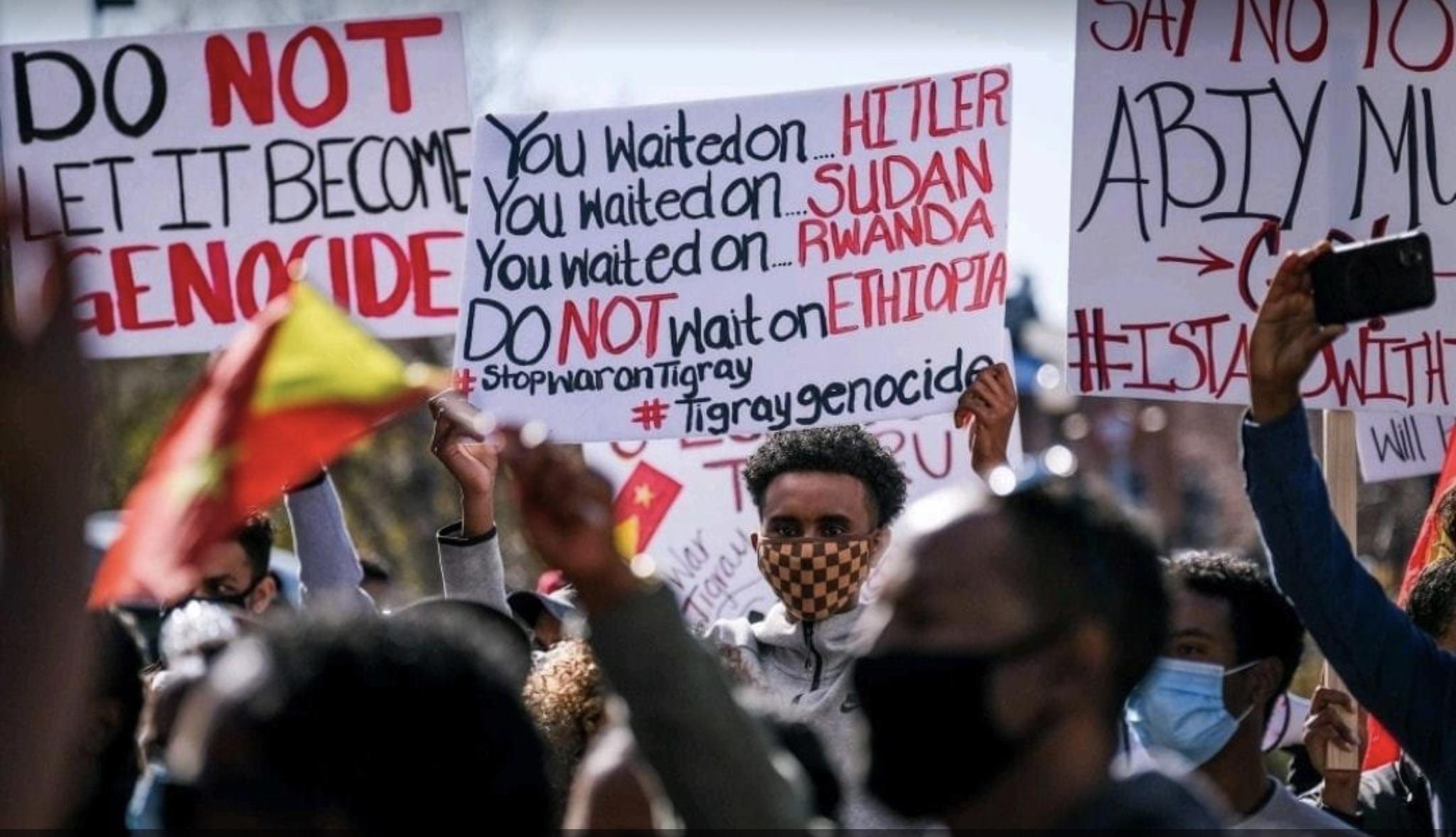
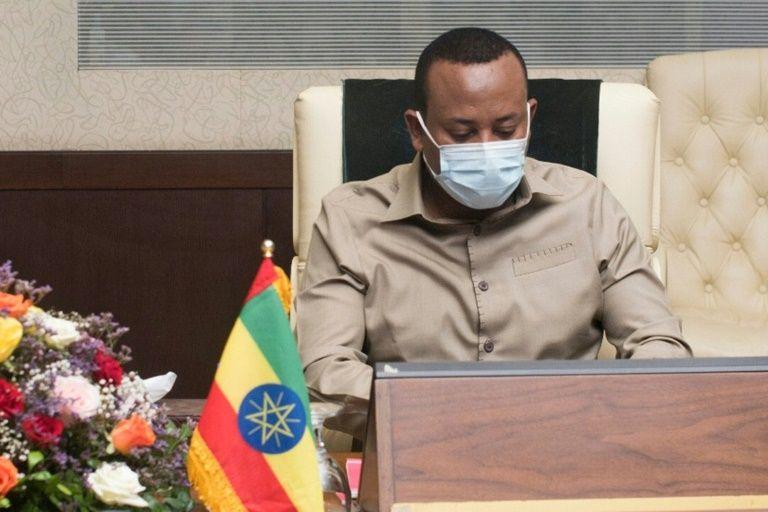
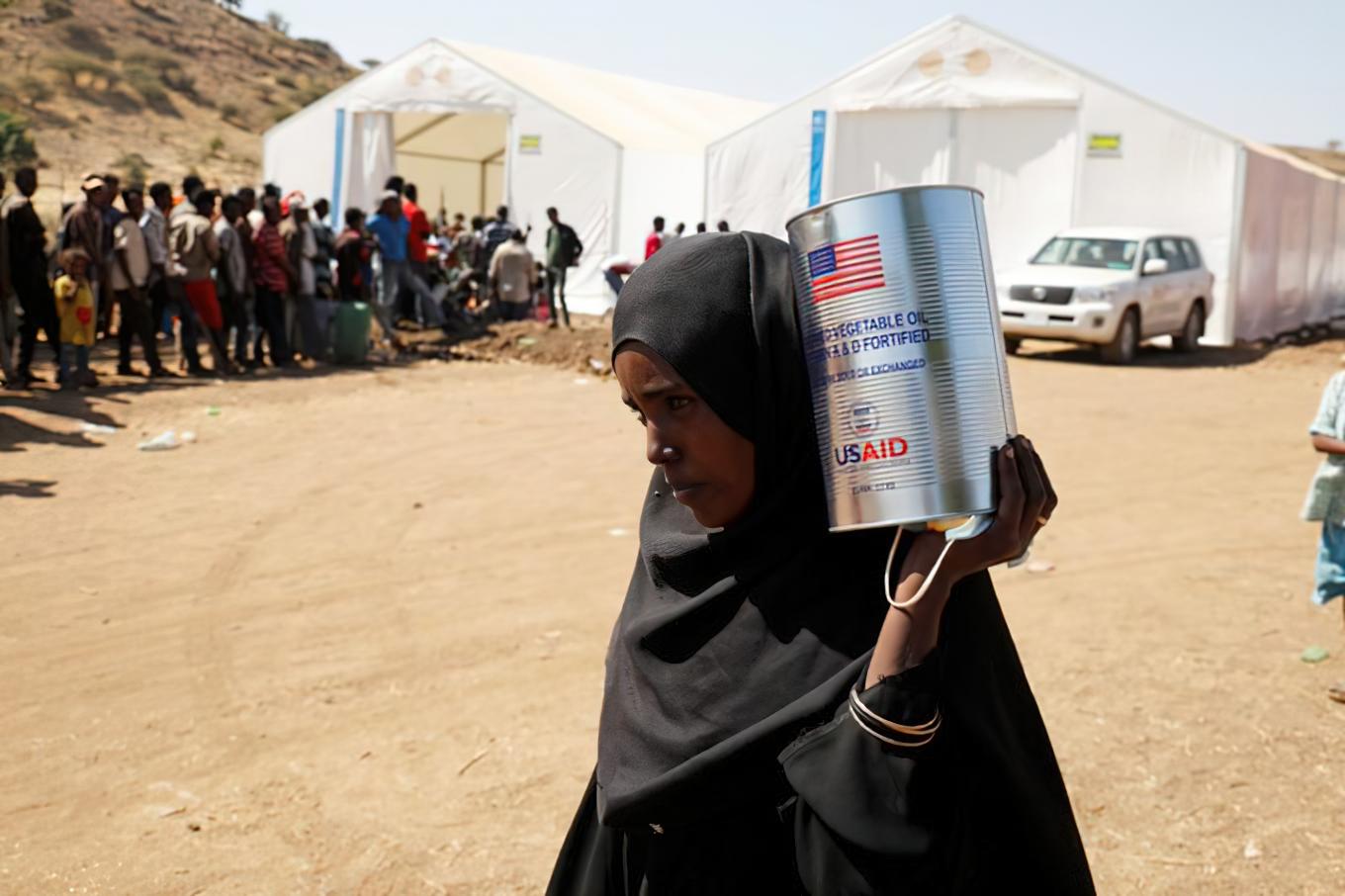
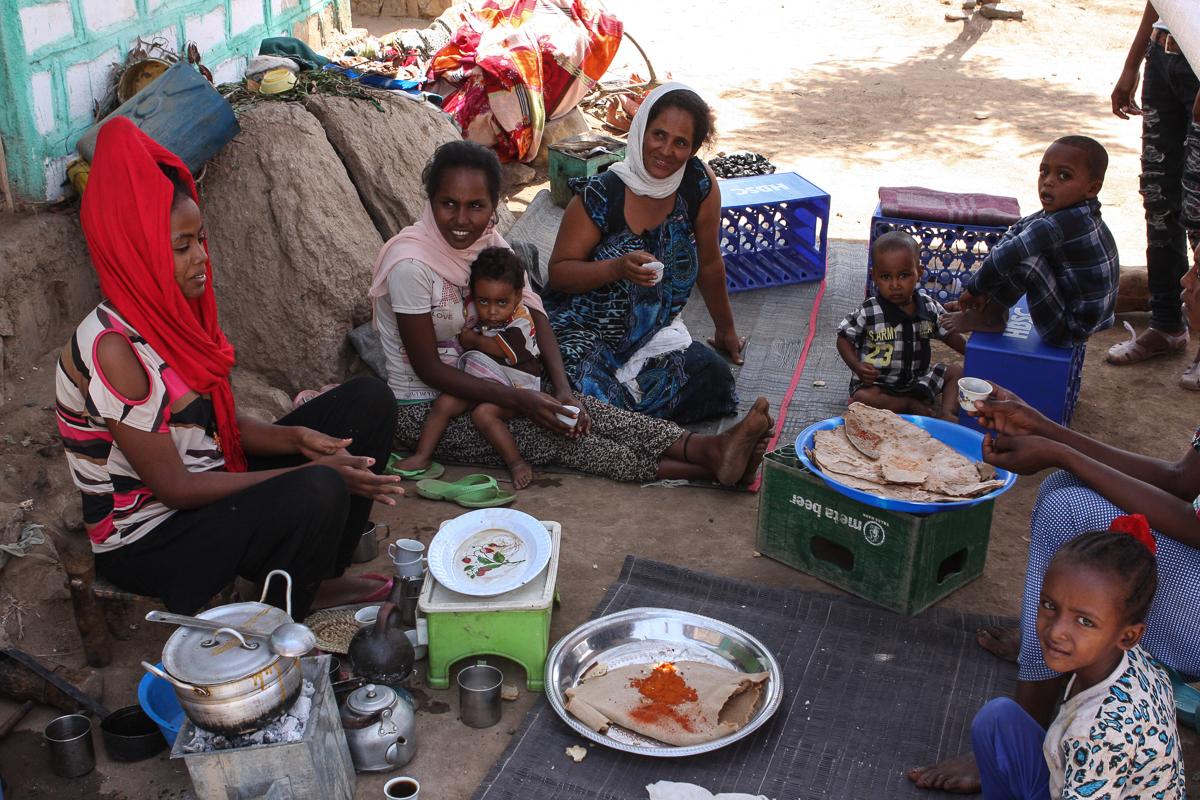 Communication with the area is extremely difficult and we are still working to gather and confirm the details surrounding the events that led to the death of our colleague.
Communication with the area is extremely difficult and we are still working to gather and confirm the details surrounding the events that led to the death of our colleague.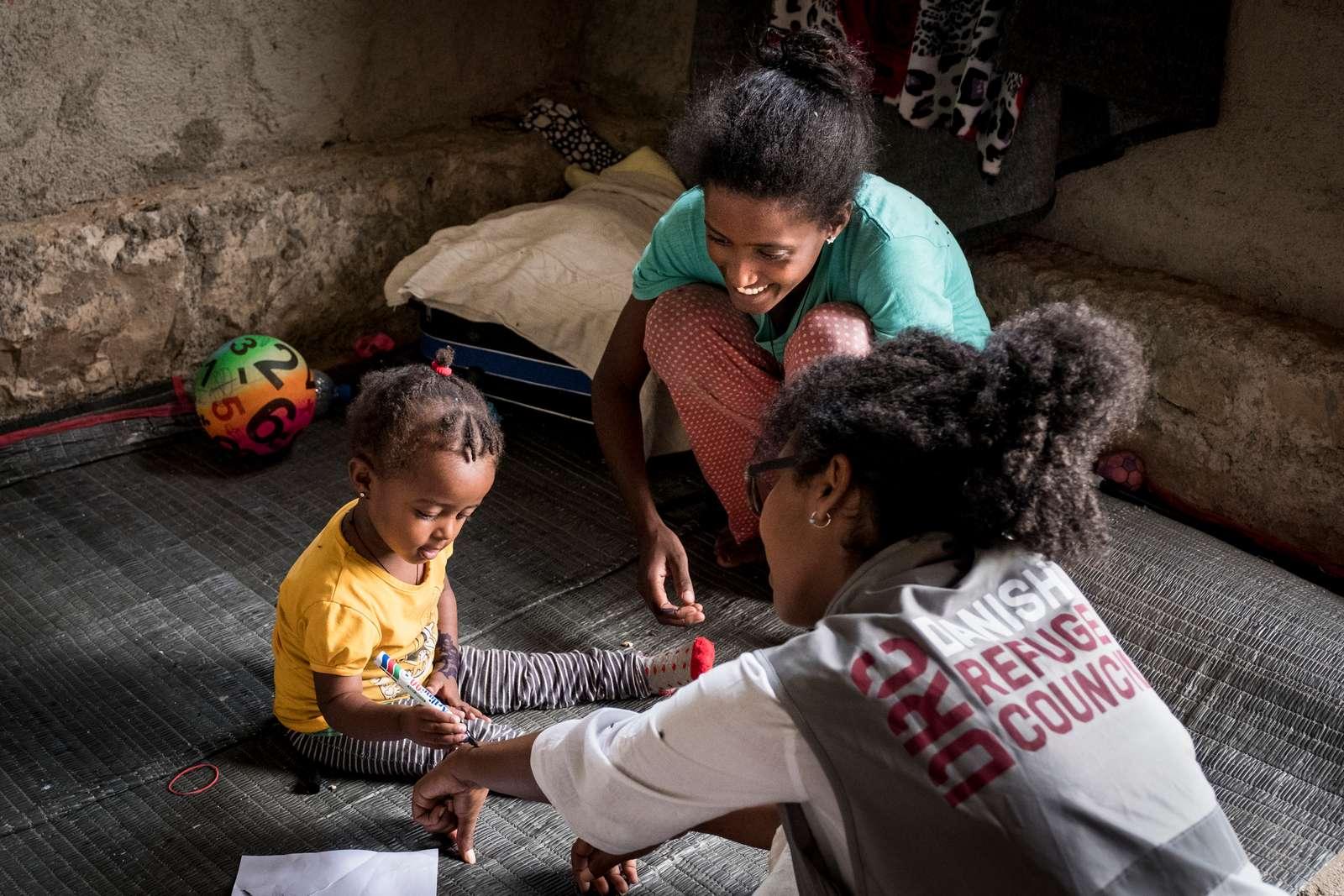
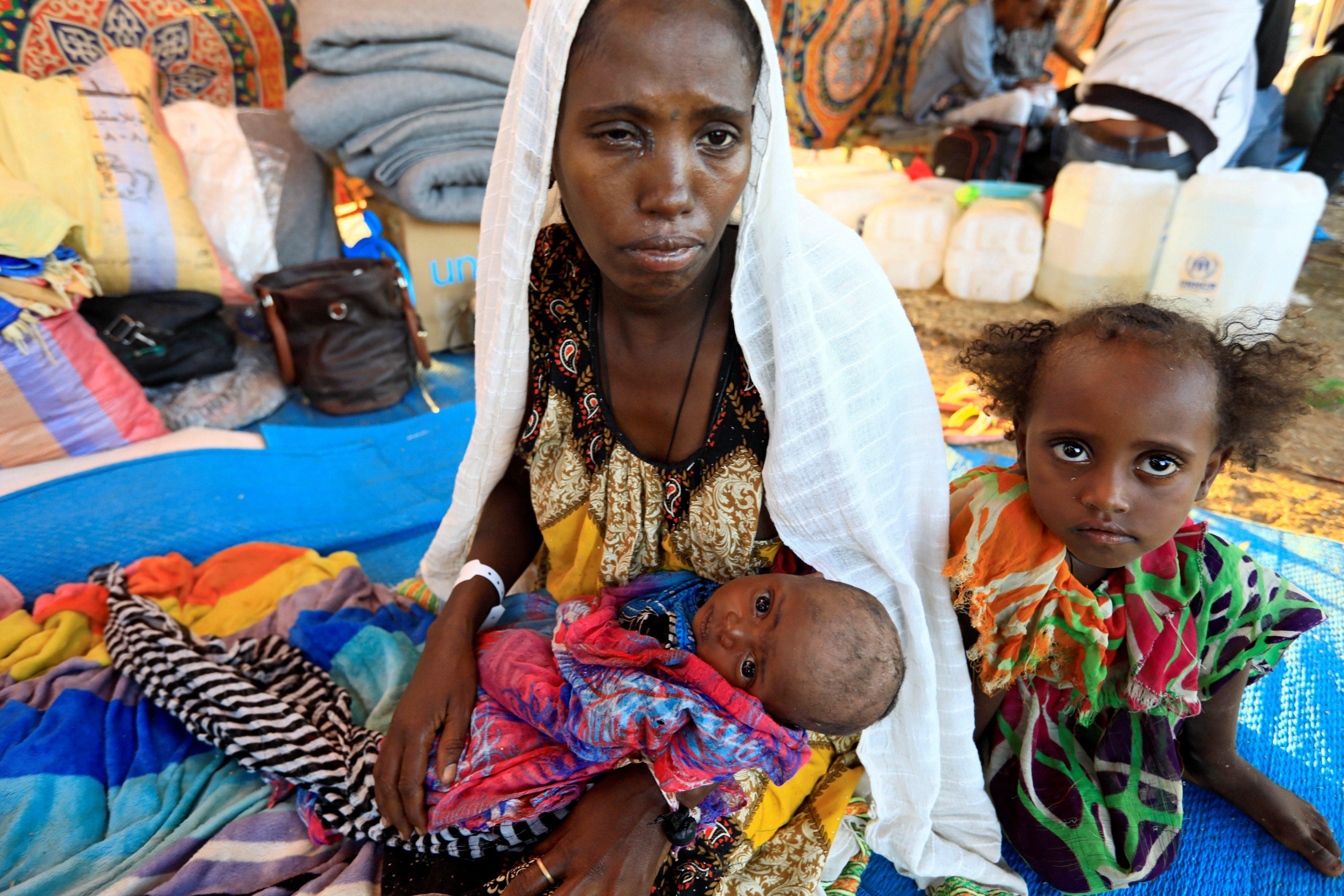
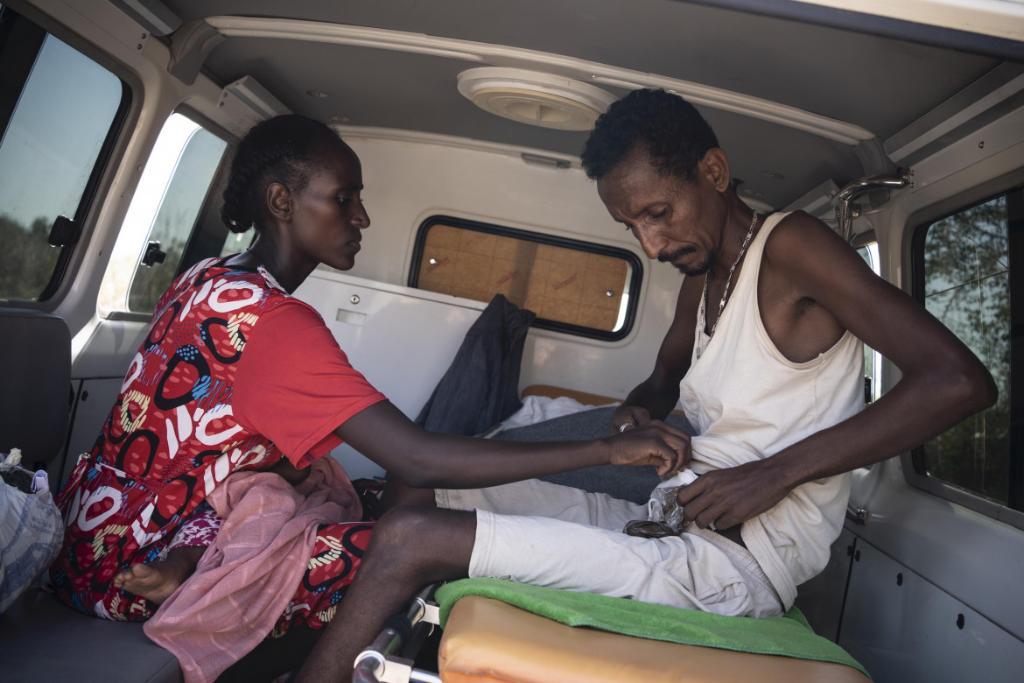 His wife, Yayish, found him wounded. They fled with their daughter in a small cart with their donkeys to Sudan.
His wife, Yayish, found him wounded. They fled with their daughter in a small cart with their donkeys to Sudan.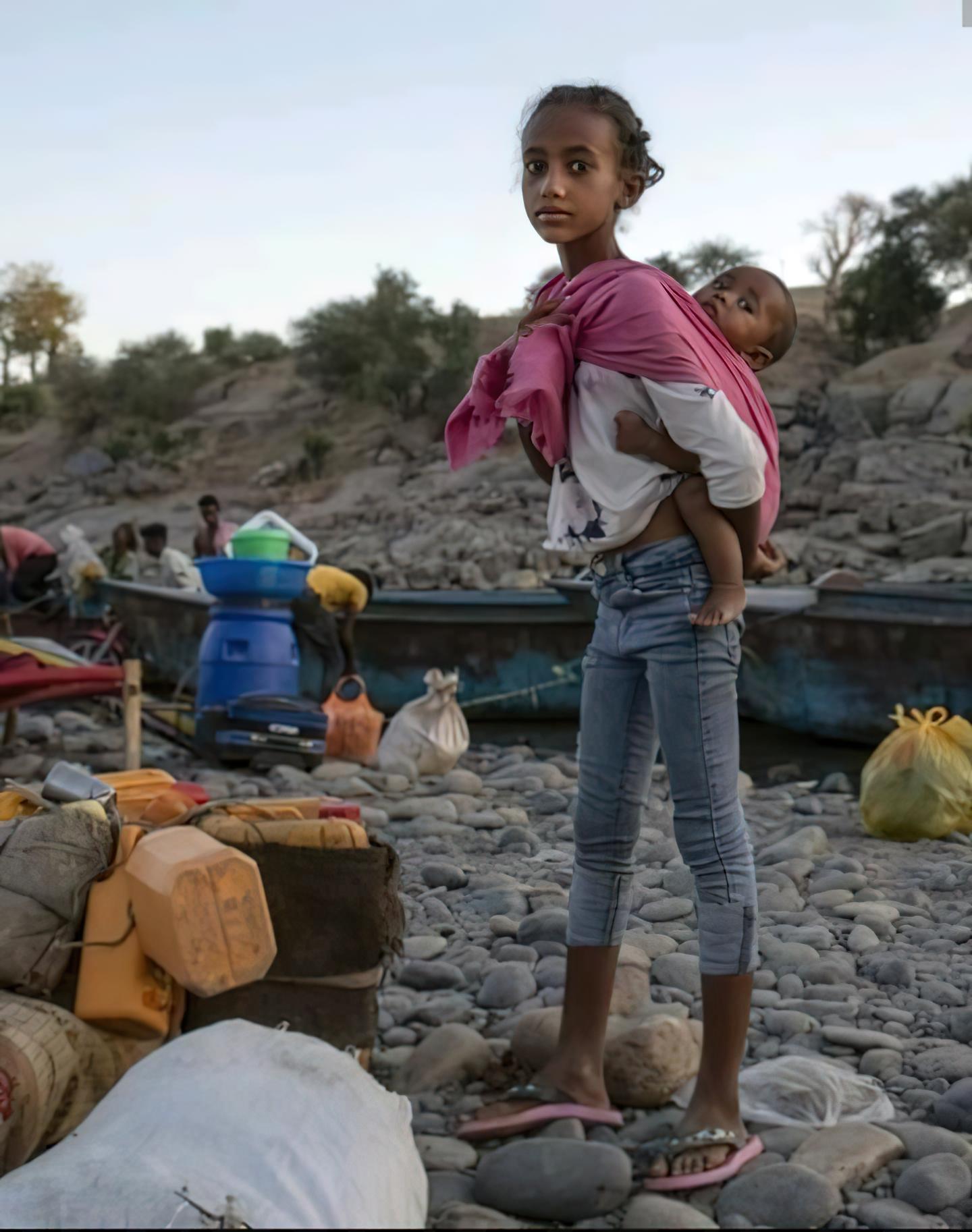
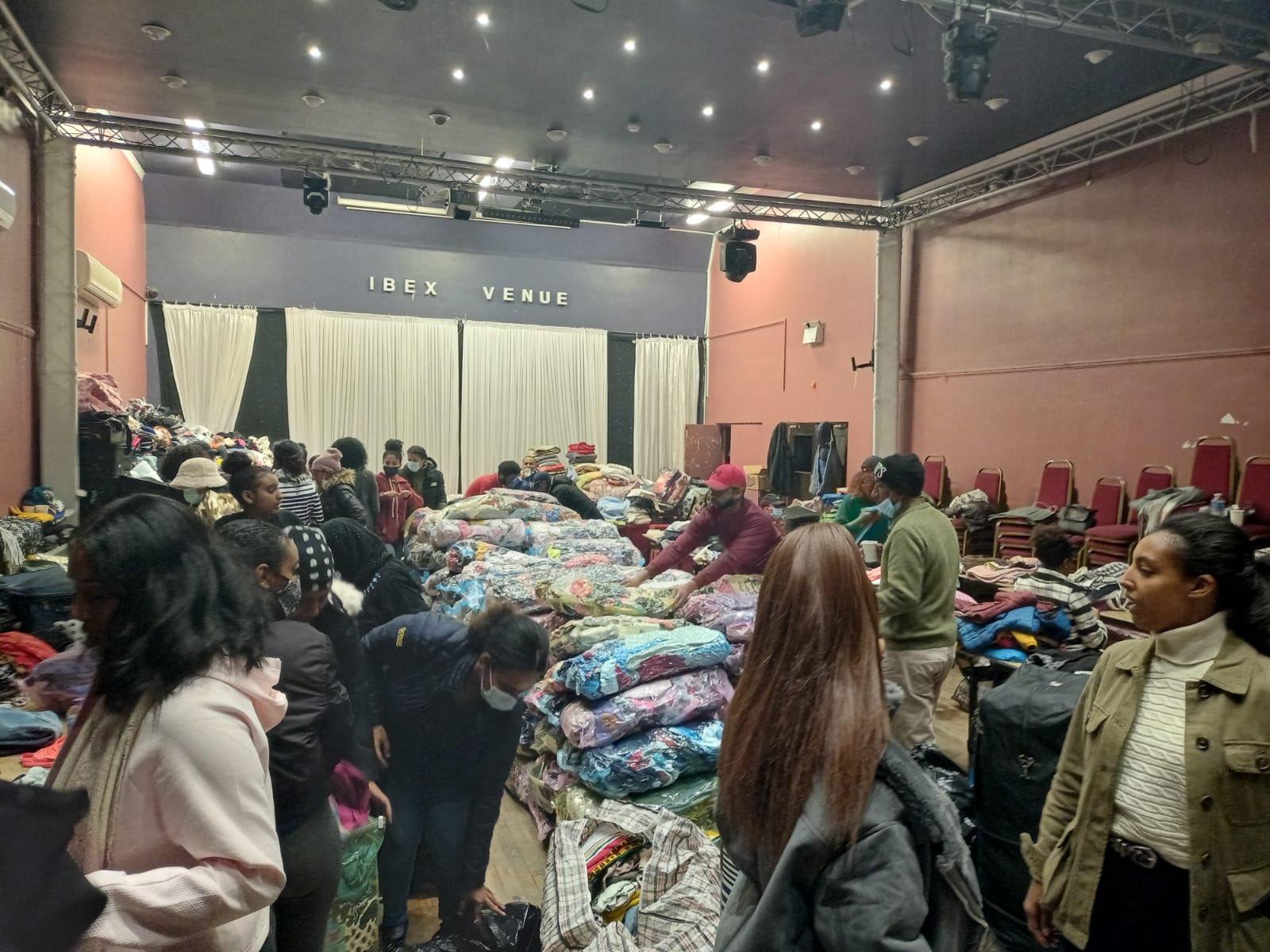
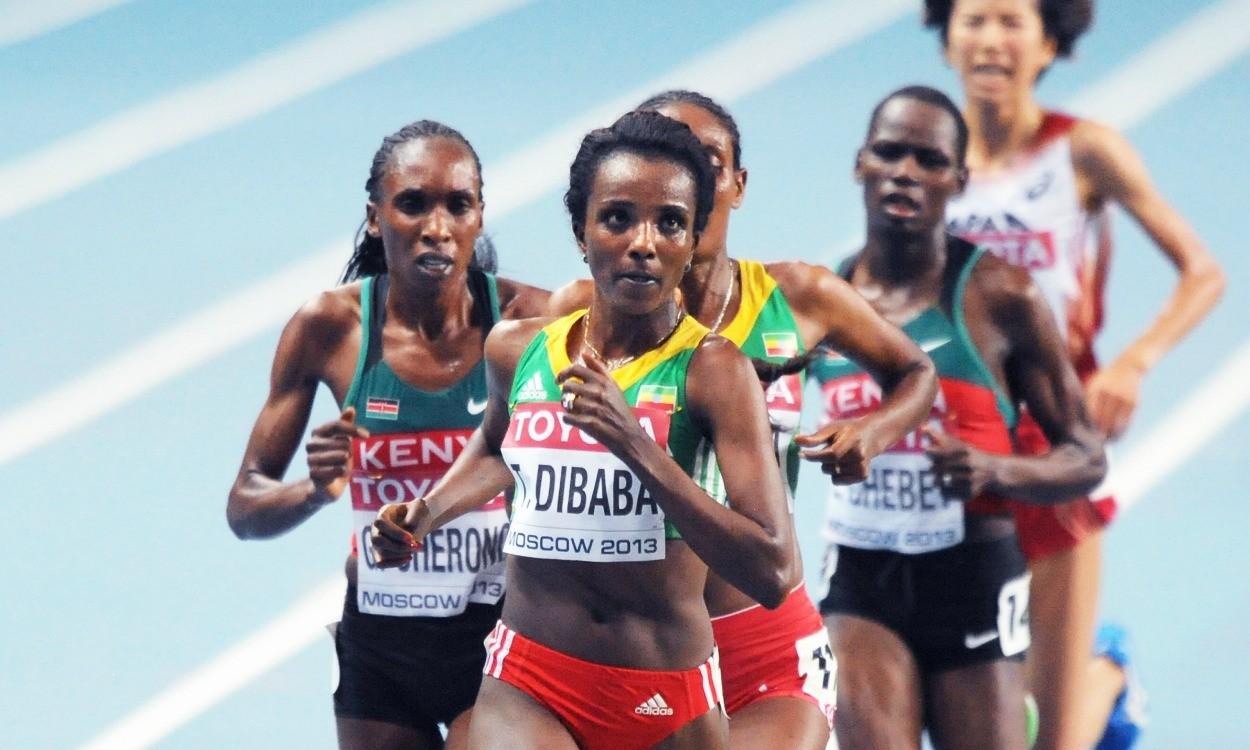
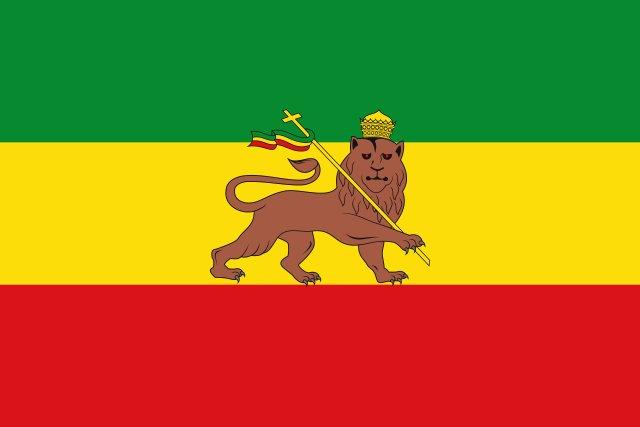
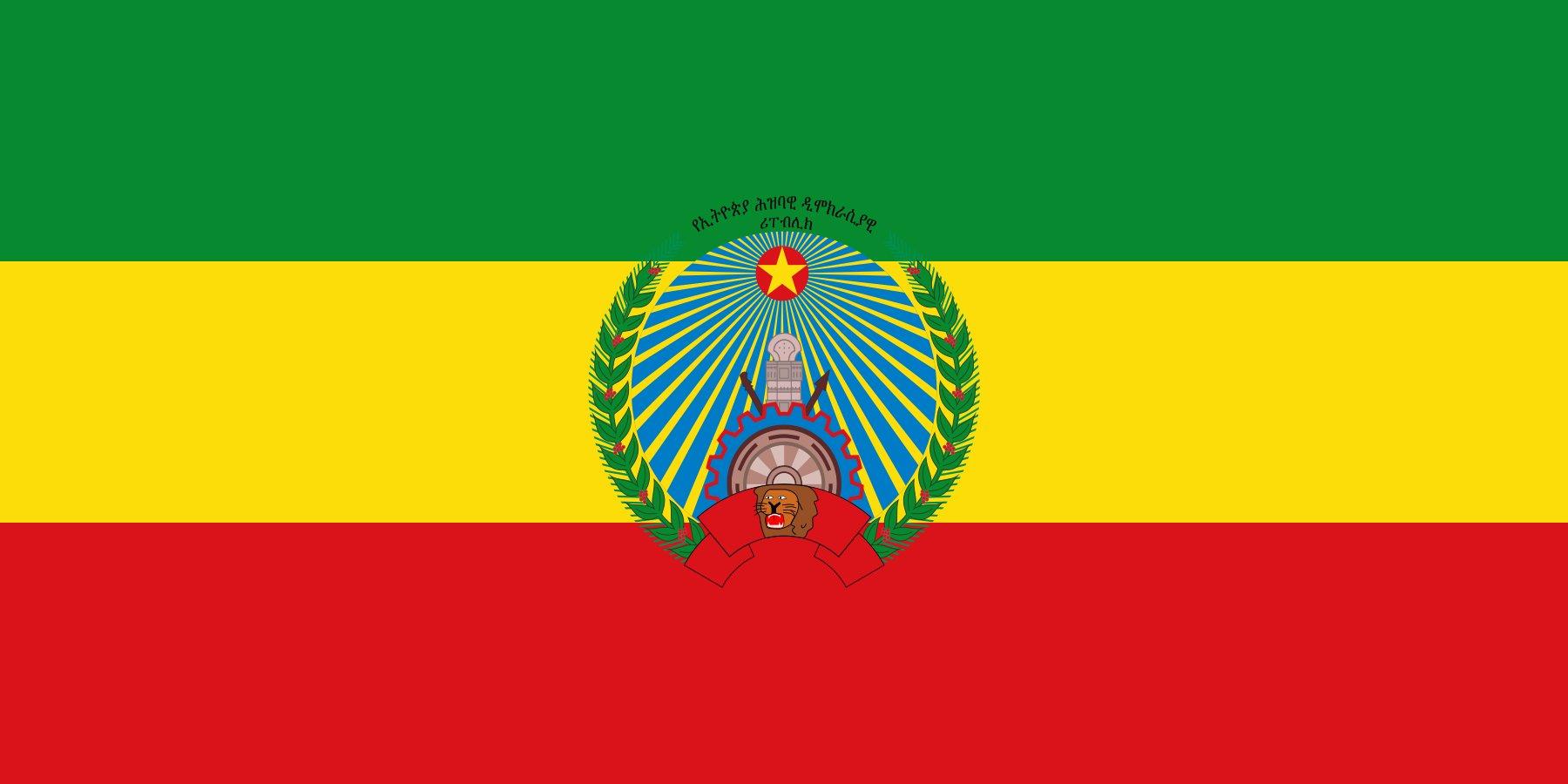 Flag of Federal Democratic Republic of Ethiopia.
Flag of Federal Democratic Republic of Ethiopia. 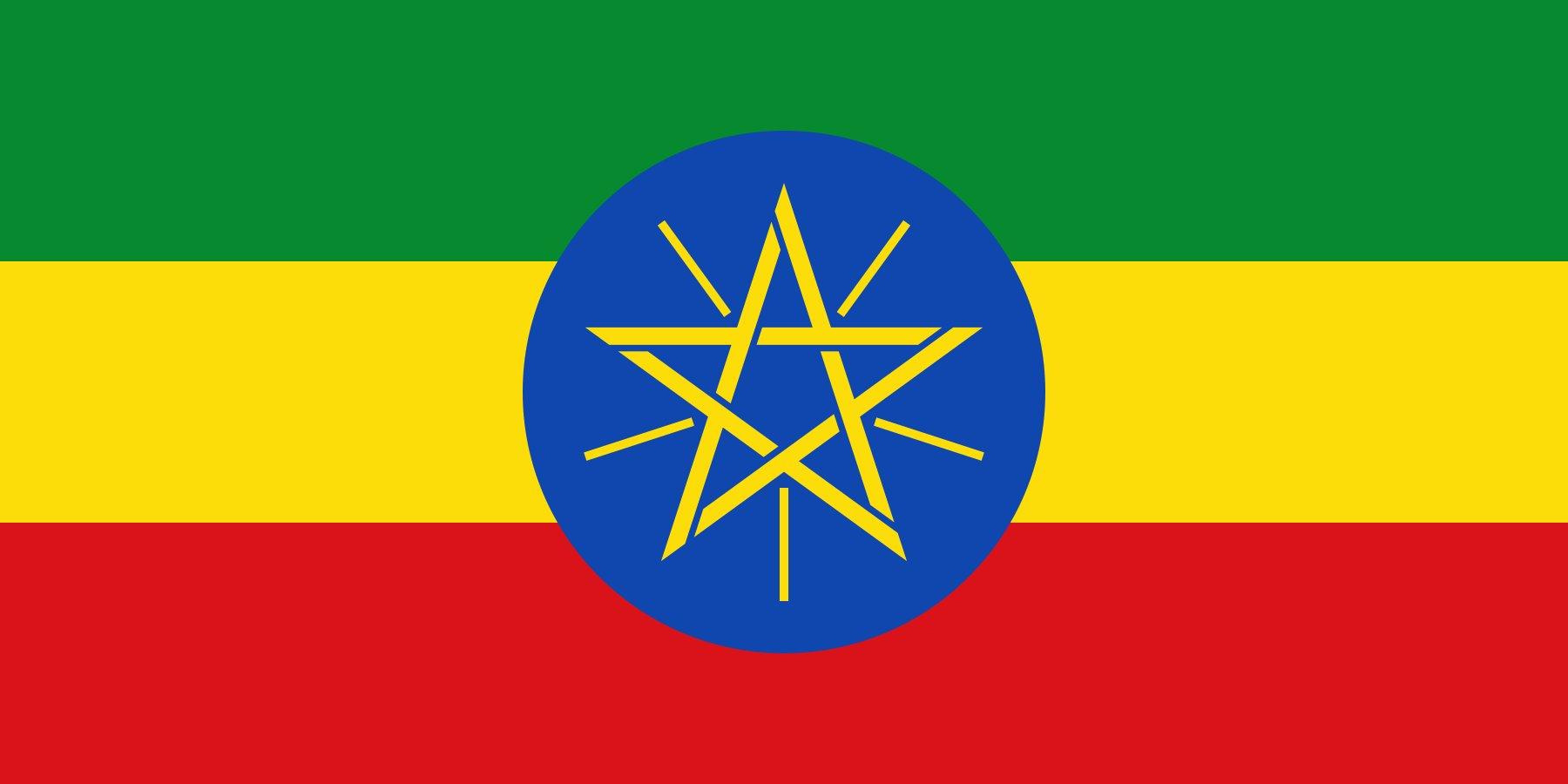
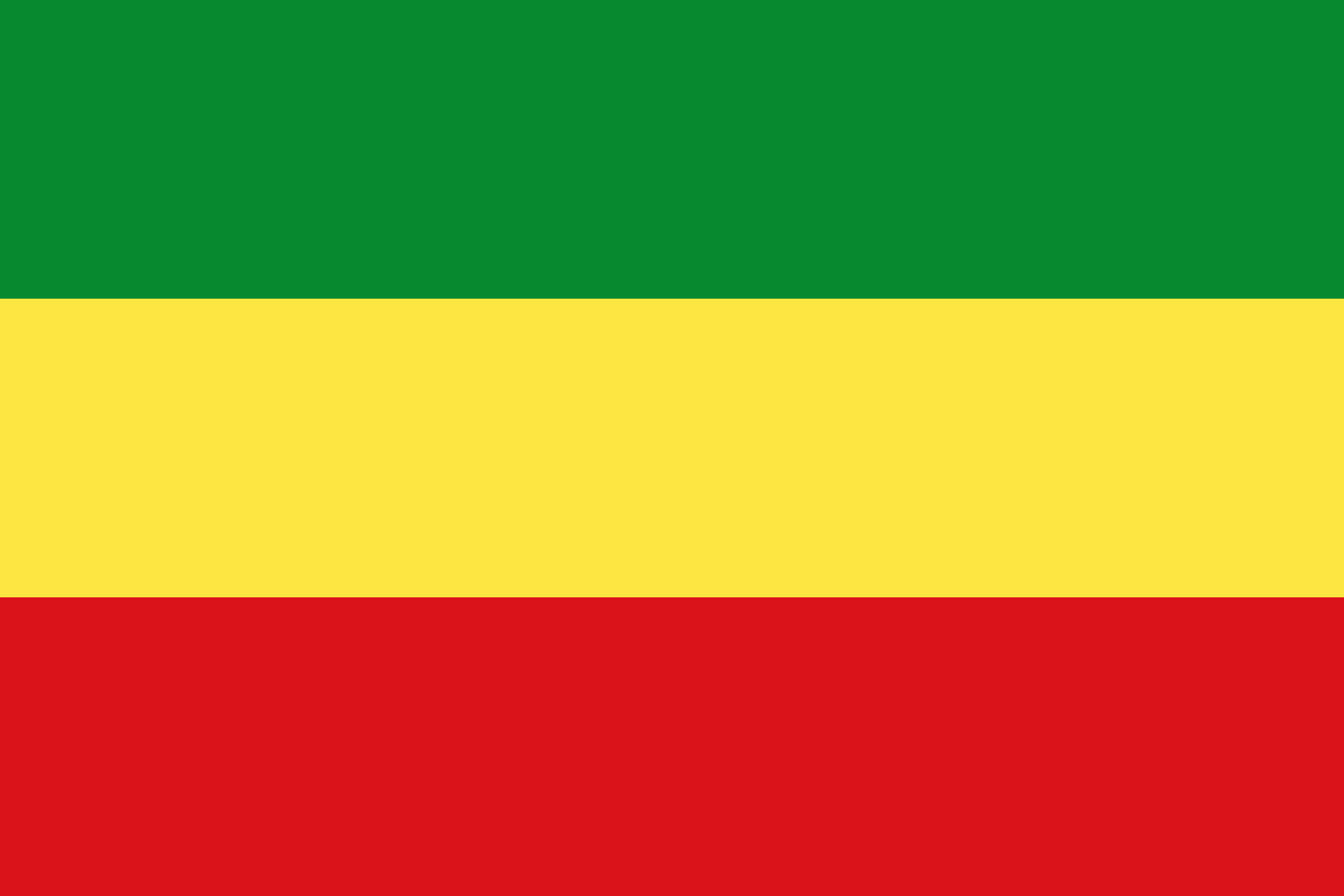
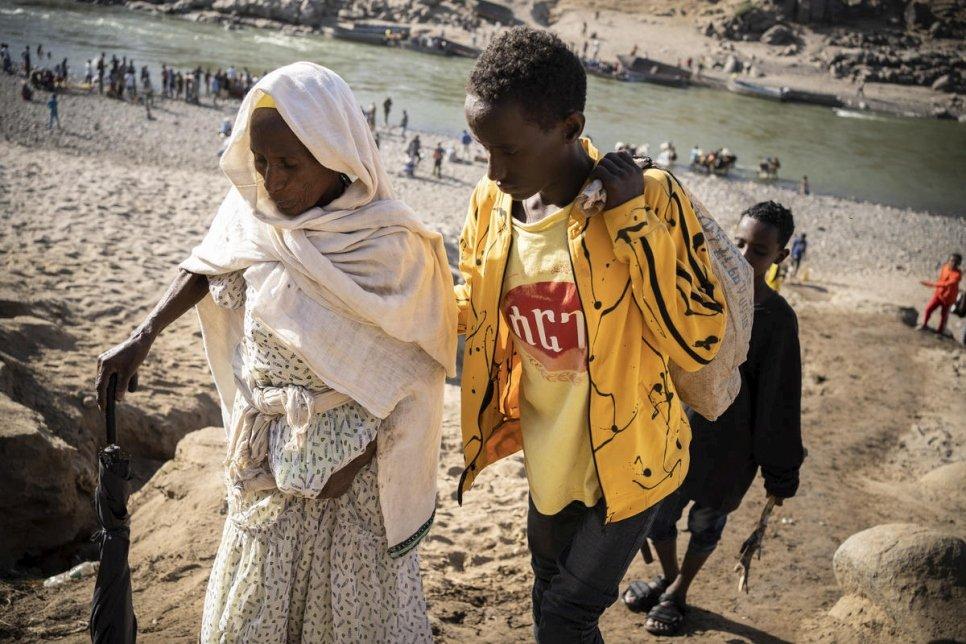
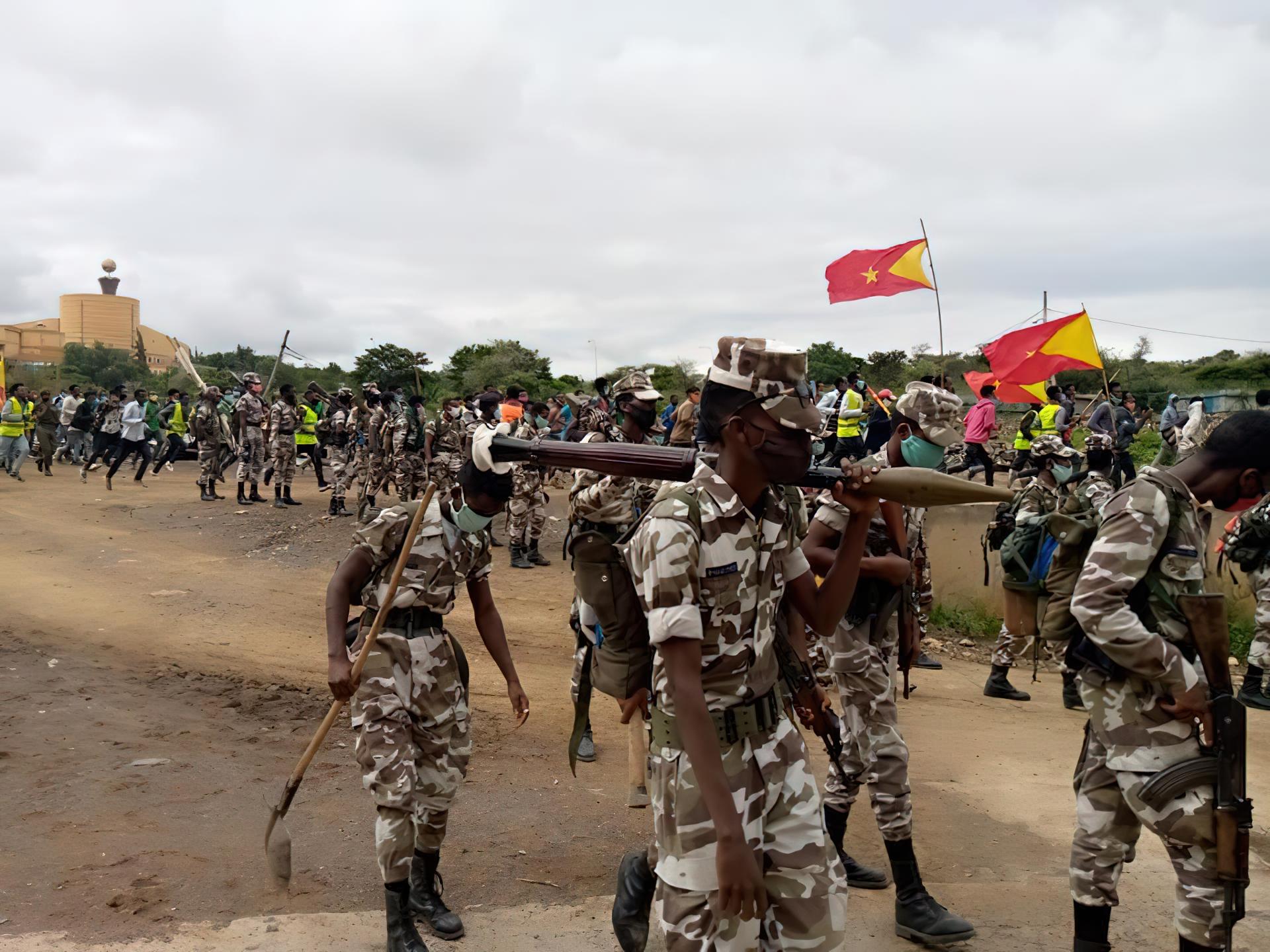
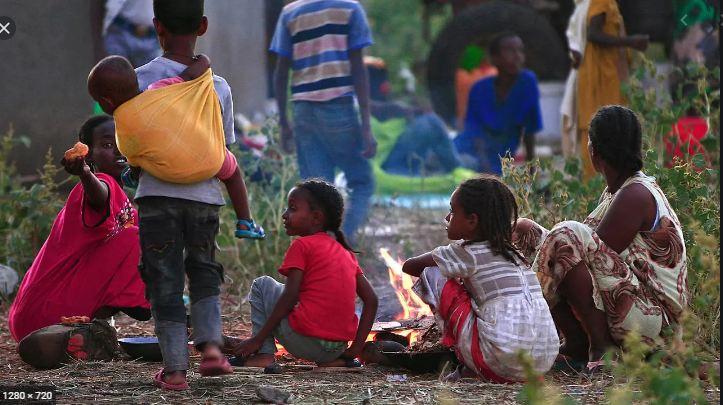 The continuing war in Tigrai is making children pass through horrific childhood experience. How much of you with children feel the pain & think of them?
The continuing war in Tigrai is making children pass through horrific childhood experience. How much of you with children feel the pain & think of them?